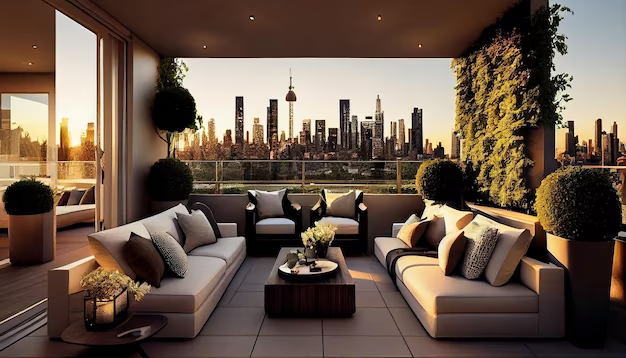
Disadvantages of Buying Property in Dubai
Dubai, renowned for its skyrocketing skyscrapers and luxurious lifestyle, has become a world-class venue for property investors. However, despite its glamorous facade, buying property in the bustling heart of the United Arab Emirates is not without its drawbacks. Navigating through complex legal frameworks, confronting financial implications, and adapting to cultural nuances present significant challenges. Investments like “”ready to move apartments for sale in Dubai with a payment plan”” might appear attractive due to their convenience and financing options, but these challenges can substantially affect the overall desirability and profitability of investing in Dubai’s real estate. Understanding these disadvantages is crucial for any investor considering Dubai as their next property venture.
Legal and Regulatory Challenges
Navigating the Freehold vs. Leasehold Ownership
Understanding the difference between freehold and leasehold properties in Dubai is the first step for any potential investor. Freehold properties grant full ownership rights, including the land on which the property is built. Conversely, leasehold properties allow ownership for a set period, typically ranging from 30 to 99 years, after which the property reverts to the freeholder. Clarity in these terms is crucial, as it affects everything from property value to inheritance rights.
Understanding the Property Laws for Expatriates
For expatriates, Dubai’s property laws can be a labyrinth of regulations and restrictions. Until the early 2000s, foreign ownership of property in Dubai was severely restricted. While laws have relaxed, ownership rights still come with nuances that can surprise expat investors. For instance, foreign owners can buy freehold properties only in designated areas, which might limit their investment choices.
The Role of RERA and Property Regulation
The Real Estate Regulatory Agency (RERA) serves as a regulatory arm for the Dubai Land Department. RERA implements strict guidelines that govern the real estate market, including developers’ responsibilities and the rights of property owners. While RERA provides a layer of protection, it also imposes regulatory hurdles that can be daunting for those unfamiliar with the system. This layer of bureaucracy can lead to delays and additional costs.

Financial Considerations
High Initial Investment Costs
Entrance into the Dubai property market often requires significant capital outlay. Properties in sought-after localities come with a hefty price tag – one not everyone can afford. Moreover, buyers are expected to pay various upfront fees, including a 4% transfer fee, a 2% real estate agent fee, and a mortgage registration fee if applicable, adding to the already high initial investment.
Although most buyers concentrate on more luxurious sectors, some look for the “”cheapest areas to live in Dubai”” as a more financially sustainable option. Even in these areas, the initial costs can be surprising when all the extra fees and charges are calculated.
Property Market Volatility
Like any other market, Dubai’s real estate is prone to fluctuations. While there have been periods of rapid growth, the market has also experienced sharp declines. For example, property prices dropped significantly during the global financial crisis in 2008 and amidst the economic downturns caused by low oil prices and geopolitical instability.
Hidden Costs and Fees
- Service Charges: Annual fees for the upkeep of communal areas, security services, and amenities.
- Maintenance Fees: Costs associated with maintaining the condition of the property.
Despite the allure of owning luxurious property, these ongoing fees can add up and impact the profitability of the investment. For properties requiring updating, an “”apartment renovation in Dubai”” can substantially inflate overall costs due to high-end materials and labor rates.
Cultural and Social Factors
Restrictions on Property and Lifestyle for Foreigners
Foreign investors may face certain lifestyle restrictions that can influence their property decisions. Some residential communities have regulations that reflect the cultural expectations of Dubai, which may include limitations on clothing, behavior, and social gatherings. Newcomers must be willing to accommodate these standards, which might not align with their own cultural norms.
Limited Social Integration Possibilities
The transient nature of Dubai’s population, with many expatriates and travelers passing through, can pose challenges for those looking to establish deeper social connections. The cultural diversity, while enriching, can also create barriers to integration and a sense of community which is important for many when setting down roots through property ownership.
The pursuit of the “”cheapest house in Dubai”” may lead some investors to less established communities where such integration challenges are even more pronounced, as these neighborhoods often lack the social infrastructure of more expensive areas.
Cultural Differences in Business Practices
Doing business in Dubai can be vastly different from other parts of the world. The negotiation process, business meetings, and the importance of establishing relationships are just a few aspects that might require an adjustment for foreigners. It’s crucial to understand and respect these cultural nuances to avoid missteps in the real estate market.

Market Risks
Potential for Oversupply and Underdemand
Dubai’s property market has faced issues with an imbalance in supply and demand. The rapid development of “”new apartments in Dubai”” can lead to an oversupply, resulting in vacant homes and apartments. This surplus can drive down rents and property values, adversely affecting investment returns.
Depreciation of Property Value
| Year | Location | Average Property Value | % Depreciation |
|---|---|---|---|
| 2021 | Dubai | $1,000,000 | 5% |
| 2022 | Abu Dhabi | $950,000 | 4% |
Climate and Environmental Concerns
Impact of Extreme Weather on Properties
The harsh climate of Dubai, characterized by extreme heat, dust storms, and high humidity, can take a toll on properties. The abrasive environment can cause exterior materials to fade and degrade more quickly than in milder climates. Property owners often incur substantial costs in air conditioning and maintenance to keep their homes comfortable and in good condition. Additionally, sand can damage mechanical systems, necessitating more frequent servicing and replacement of parts. These climate-induced challenges can significantly increase the cost of property upkeep.
Maintenance Costs Related to Climate
Due to the excessive heat, properties in Dubai require frequent maintenance to preserve their aesthetic and functional value. Swimming pools, lush gardens, and air conditioning systems – all staples of Dubai luxury living – require continuous and often costly attention. Numbered list of typical maintenance tasks due to climate:
- Regular servicing of HVAC units to ensure efficiency and longevity in the face of constant use.
- Intensive landscaping maintenance to sustain greenery in the arid, desert conditions.
Sustainability and Environmental Considerations
With the growing global emphasis on sustainability, Dubai has been under scrutiny for its eco-friendliness, or lack thereof. The reliance on air conditioning and desalinated water, coupled with limited recycling infrastructure, poses long-term sustainability challenges for property owners concerned with their ecological footprint. Additionally, the energy-intensive lifestyle prevalent in Dubai can lead to higher utility bills, contributing to the financial burdens of property ownership.
Legalities of Resale and Inheritance
Complications with Reselling Property
In the event that property owners decide to sell, they may face challenges due to stringent real estate regulations and a competitive market. The fluctuating market can lead to uncertainty in resale value, and potential legal roadblocks may delay or complicate the sales process. The abundance of new properties can also overshadow older listings, making it harder for sellers to attract buyers.
Inheritance Laws for Expatriates
Inheritance laws in Dubai can be complex, especially for expatriates. Islamic law, or Sharia, can influence succession matters, leading to potential disputes and complications. Investors must have a solid understanding of how their property may be divvied up among heirs, which is often a departure from Western inheritance practices. This uncertainty can act as a deterrent for those considering a long-term investment in Dubai’s property landscape.
- Establishing a legally recognized will in Dubai can help safeguard investors’ assets for their intended beneficiaries.
- Awareness of Dubai’s specific succession rules is imperative to ensure a smooth transfer of property ownership after the owner’s demise.

Overall
Investing in property in Dubai requires a careful risk assessment considering the various disadvantages detailed in this article. While the emirate offers unrivaled luxury and a vibrant international community, potential investors must confront and navigate through a gauntlet of challenges. These range from the tangible financial and legal obstacles to the less tangible cultural and lifestyle adjustments. As the market continues to evolve, staying informed and adapting to changes can be the key to a successful investment in Dubai’s property landscape.
FAQs Section
1. What are the risks associated with buying property in Dubai as a foreign investor?
Foreign investors face legal complexities, market volatility, and cultural adjustments. They must also consider the impacts of climate, potential oversupply, and residency visa regulations associated with property ownership.
2. Is it expensive to maintain a property in Dubai?
Property maintenance in Dubai can be costly due to the harsh climate requiring continuous air conditioning, frequent external paint jobs, and landscaping upkeep in response to extreme temperatures and dust.
3. How do Dubai’s property laws affect inheritance for expatriates?
Dubai’s inheritance laws are influenced by Sharia, which can differ significantly from Western practices. Expatriates are encouraged to have a legally recognized will within Dubai to safeguard their assets.
4. Are there any hidden costs I should be aware of when buying a property in Dubai?
Beyond the purchase price, buyers should budget for service and maintenance fees, transaction costs, and potential renovation expenses. A thorough understanding of the full financial commitment is essential.
5. How does the climate in Dubai affect real estate investments?
The extreme heat and environmental conditions can lead to higher utility and maintenance costs and may accelerate the depreciation of certain property features, affecting long-term investment returns.

